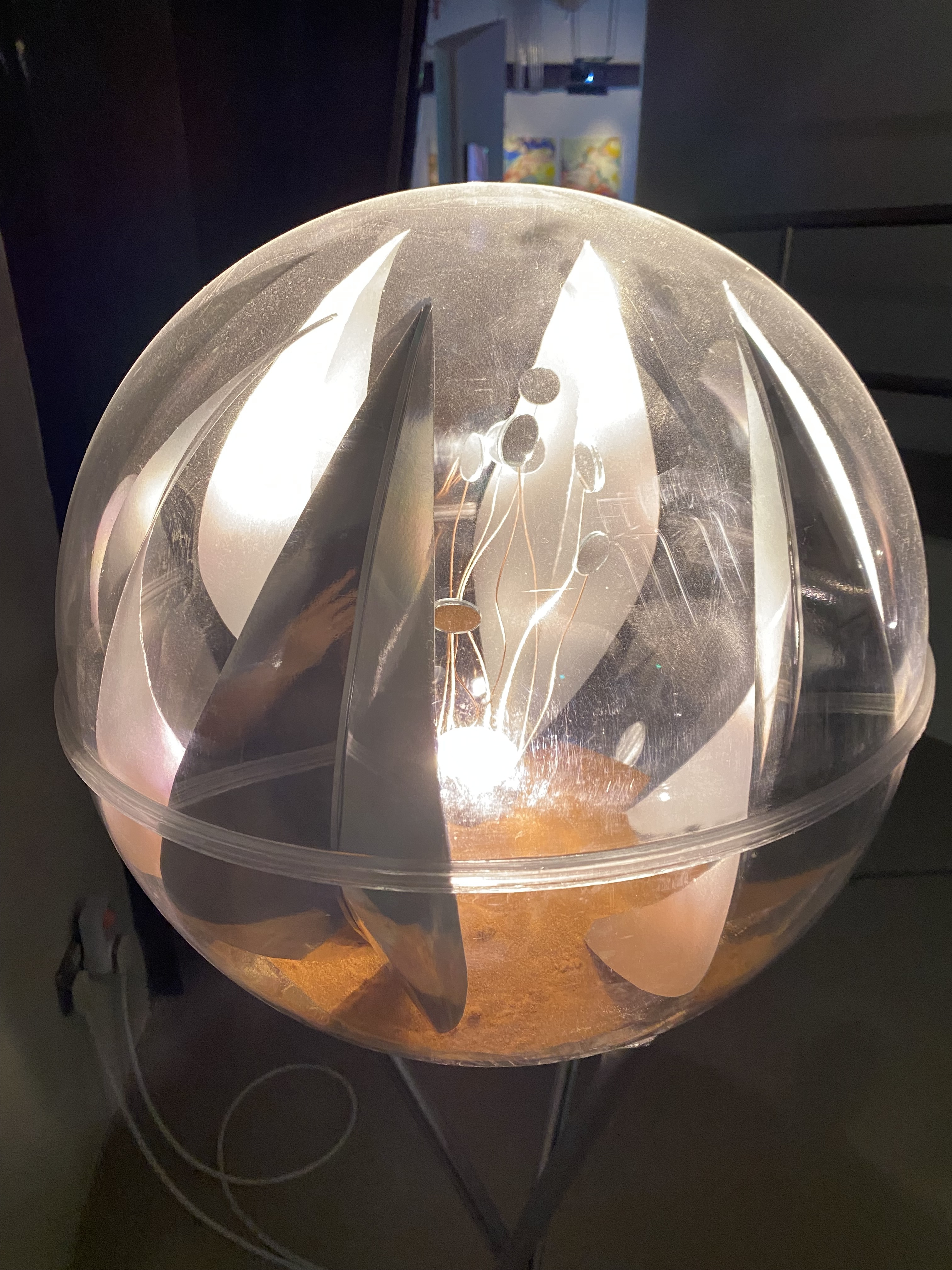Guardian investigation finds almost 7,000 proven cases of cheating – and experts says these are tip of the iceberg
Thousands of university students in the UK have been caught misusing ChatGPT and other artificial intelligence tools in recent years, while traditional forms of plagiarism show a marked decline, a Guardian investigation can reveal.
A survey of academic integrity violations found almost 7,000 proven cases of cheating using AI tools in 2023-24, equivalent to 5.1 for every 1,000 students. That was up from 1.6 cases per 1,000 in 2022-23.
Figures up to May suggest that number will increase again this year to about 7.5 proven cases per 1,000 students – but recorded cases represent only the tip of the iceberg, according to experts.
The data highlights a rapidly evolving challenge for universities: trying to adapt assessment methods to the advent of technologies such as ChatGPT and other AI-powered writing tools.
Oh man the BBC is surely already preparing for Adolescence: rise of the robots
this is only going to become more and more of a problem. and honestly, why care at this point? these students aren’t going to do well in their fields. let these businesses deal with the incoming wave of ChatGPT-led graduates. the rest of the world uses these LLMs for everything else, why are the students supposed to be any different? students are not going to listen, so fighting against this and expelling everyone seems pointless.
Everyone should care about the efficacy of the education system. It’s the foundation of a useful society, and essential for its betterment. This method of cheating and its rate of adoption is a major blow to a whole generation of students that will learn to have others think for them instead of leaning to think for themselves.
So when you say “Everyone should care about the efficacy of the education system,” we are including the cheating students under “everyone,” yes?
Yes? Why wouldn’t I?
Because I want to live in a society in which my pharmacist gives me the right fucking meds. Are you insane???
Why fight against it? Because some of these students will be going into jobs that are life-or-death levels of importance and won’t know how to do what they’re hired to do.
There’s nothing wrong with using a large language model to check your essay for errors and clumsy phrasing. There’s a lot wrong with trying to make it do your homework for you. If you graduate with a degree indicating you know your field, and you don’t actually know your field, you and everyone you work with are going to have a bad time.
If ChatGPT can consistently do the needed activities without raising eyebrows, it’s kind of a redundant job anyway. If they’re posing problems that have little to do with the job, it’s a shit course.
That’s an odd thing to say. For one thing, there are plenty of physical activities that one could get a reasonable description of from ChatGPT, but if you can’t actually do them or understand the steps, you’re gonna have a bad time.
Example: I’ve never seen any evidence that ChatGPT can properly clean and sterilize beakers in an autoclave for a chemical engineering laboratory, even if it can describe the process. If you turned in homework cribbed from ChatGPT and don’t actually know how to do it, your future lab partners aren’t going to be happy that you passed your course by letting ChatGPT do all the work on paper.
There’s also the issue that ChatGPT is frequently wrong. The whole point here is that these cheaters are getting caught because their papers have all the hallmarks of having been written by a large language model, and don’t show any comprehension of the study material by the student.
And finally, if you’re cheating to get a degree in a field you don’t actually want to know anything about… Why?
Well then make the students clean and sterilise beakers. It only kills assignments in written form with limited supervision, the way I assume calculators and traditional algorithms changed a bunch of things before my time. Lots of professors and educators in general are making exactly that kind of change.
That means more lab time, it’s true, but it’s not the first time universities have had to expand their facilities. And at the other end think of all the savings on teaching writing.
And finally, if you’re cheating to get a degree in a field you don’t actually want to know anything about… Why?
It’s kind of unrelated, but money and prestige, probably. Caring about knowing for it’s own sake is depressingly rare.
It’s almost like we shouldn’t value the importance of just passing the exam/ writing the paper and revamp our entire approach to teaching
This is what I have been hoping LLMs would provoke since the beginning.
Testing understanding via asking students to parrot textbooks with changed wording was always a shitty method, and one that de-incentivizes deep learning:
It allows for teachers that do not understand their field beyond a superficial level to teach, and to evaluate. What happens when a student given the test question “Give an intuitive description of an orbit in your own words” answers by describing orbital mechanics in a relative frame instead of a global frame, when the textbook only mentions global frame? They demonstrate understanding beyond the material which is excellent but all they do is risk being marked down by a teacher who can’t see the connection.
A student who only memorized the words and has the ability to rearrange them a bit, gets full marks no risk.
Ditto. A license just means you can pass a test. It doesn’t say anything more than that. That’s why you’re always advised to get 2nd opinions.
A theoretically correct but practically useless sentiment.
Maybe we can get back to workplaces training their employees for the job they want them to do rather than putting the entire cost of training on 18 year oldish high school graduates for a job market that might not even be great (or exist) once they graduate.
Realistically, any job that you hire someone with a degree for will require training - the question is how much they’ll understand and at what level the training needs to start.
I think universities care because they depend heavily on reputation. Companies will higher more graduate from a higher standard university.
I think if no solution comes quickly or univirsties doesn’t adapt, this will render the whole echo system useless.
I remember during school that translators were frowned upon, and now guess what, they are accepted as a normal tool.
Ai is going through the exact same phase. Peoples memories are horrifically short.
Ah yes, because translators also did the homework for the students
Googling answers at the time is no different, this just makes it easier. Anything can be shined in a bad light. Google has answers, translators do, calculators do, tutors do, it’s all the same in the end. They can also provide incorrect results too, so they are all essentially the same when finding the metric YOU choose.
The metric is “how much does this tool does the assignment for you”. A translator does zero (I’m assuming a translator at classes, though any “translate this” assignment coupled with google translate or similars would make this fit in with AI). Computers made the writing and copy-pasting part easier and faster, but they didn’t do the assignment. Google made the “find the correct stuff” easy, you no longer needed to manually look thru several books or ask people where the answer would be, but you still had to find it. Still, if an assignment asked for something that wasn’t perfectly answered on some page on the internet, like some random equation or specific programming code, you’d still have to work out something.
With AI, you just throw the prompt and copy the result. “A patient arrived and has complained about severe chest pain. What procedures should be executed in which order?” - Don’t know, don’t care, AI wrote something, so it must be true. Copypaste, send, done.
That leads to the point where, if the people who are supposed to actually know stuff only pretend to know thanks to AI covering their asses, why should anyone bother with them? Skip the literal middleman and just ask an AI the same thing they’d ask and be done with it. “AI doc, I feel like my heart is burning, what do I do?” - Is the answer right or wrong? Don’t know, don’t care, the person who should didn’t, either.
Should be expelled and banned for life.
At least expelled. But this is sooo damn hard to enforce. I mean, my perspective is from germany, but we also deal with plagiarism by ChatGPT&Co sometimes, especially in Bachelors or Master Theses. I never saw a student in expelled for any form of plagiarism in my three years at the university. Worst case was always that he or she failed the thesis or course, because the university is so damn afraid of any lawsuit that maybe could occur.
Everyone who’s not religious cheats though.
I’m the most atheistic person you’re gonna meet, and no, I don’t cheat.
Maybe not with AI but in a different way. Also exceptions obviously exist.
Anyways enough of boosting your stats.
Also not without ML. Especially in university you don’t learn out of obligation anymore, you learn to actually acquire new skills. As soon as you let someone else or an LLM do that, you’re very clearly showing that you don’t actually have any interest in learning, but only in succeeding. Which is very fucking worthless, and dangerous.
I wish people were so informed about online toxicity like you are about studying.
Not from UK and also not a student, but imo this is more a school problem than the students. The teachers just do not understand how to cope with AI. With open note exam and traditional exam style questions, I would be an idiot if I do use AI.
It’s not cheating, it’s vibe studying
Three magic words - “Open Note Exam”
Students prep their own notes (usually limited to “X pages”), take them into the exam, gets to use them for answering questions.
Tests application and understanding over recall. If students AI their notes, they will be useless.
Been running my exams as open note for 3 years now - so far so good. Students are happy, I don’t have to worry about cheating, and the university remains permanently angry because they want everything to be coursework so everyone gets an AI A ^_^
No shit. I’m in postsecondary as an instructor and it is so beyond frustrating . They all use it, they don’t want to read or learn.
None of our institutions encourage “learning”; they are built to encourage “making the grade”. Why they need the grade and what it represents is irrelevant to students. It’s just a barrier that society has placed in front of them.
There needs to be something done about how we, as a society, approach education because whatever we are doing ain’t working. It apparently only worked at a very surface level and that was only because A.I. wasn’t available yet to be an easy out.
In some regard I don’t think it should be considered cheating. Don’t beat me up yet, I’m old and think AI sucks at most things.
AI typically outputs crap. So why does this use of a new and widely available tech get called out differently?
Using Google (in the don’t be evil timeframe) wasn’t cheating when open book was permitted. Using the text book was cheating on a closed book test. In some cases using a calculator was cheating.
Is it cheating if you write a paper completely on your own and use spell check and grammar check within word? What if a grammarly type extension is used? It’s a slippery slope that advances with technology.
I remember testing and assignments that were designed to make it harder to cheat, show your work, for math type approaches. Quizzes and short essays that make demonstration of the subject matter necessary.
Why doesn’t the education environment adapt to this? For writing assignments, maybe they need to be submitted with revision history so the teacher can see it wasn’t all done in one go via an LLM.
The quick answer responses are somewhat like using Wikipedia for a school paper. Don’t site Wikipedia and don’t use the generated text for anything but a base understanding of the topic. Now go use all the sources these provided, to actually do the assignment.
Chatgpt output isn’t crap anymore. I teach introductory physics at a university and require fully written out homework, showing math steps, to problems that I’ve written. I wrote my own homework many years ago when chegg blew up and all major textbook problems were on chegg.
Just two years ago, chatgpt wasn’t so great at intro physics and math. It’s pretty good now, and shows all the necessary steps to get the correct answer.
I do not grade my homework on correctness. Students only need to show me effort that they honestly attempted each problem for full credit. But it’s way quicker for students to simply upload my homework pdf to chatgpt and copy down the output than give it their own attempt.
Of course, doing this results in poor exam performance. Anecdotally, my exams from my recent fall semester were the lowest they’ve ever been. I put two problems on my final that directly came from from my homework, one of them being the problem that made me realize roughly 75% of my class was chatgpt’ing all the homework as chatgpt isn’t super great at reading angles from figures, and it’s like these students had never even seen a problem like it before.
I’m not completely against the use of AI for my homework. It could be like a tutor that students ask questions to when stuck. But unfortunately that takes more effort than simply typing “solve problems 1 through 5, showing all steps, from this document” into chatgpt.
This is very insightful and provides good perspective.
If I boil it down to take away is that GPT is enough to get through the fundamentals of student material, students can fake competence of the subject up to the cliff they fall off at the test.
This ultimately isn’t preparing them for the world. It’s nearly impossible to catch until it’s too late. The pass or fail options aren’t helping because neither really represents the students best interests.The call to ban it for school is the only lever we can grasp for is because every other KNOWN option has been tried or assessed.
Yeah, that fake competence is a big thing. Physics Education Research has become a big field and while i don’t follow it too closely, that seems to be a reoccuring theme - students think they are learning the material with such reliance on AI.
I intend to read a bit more of this over the summer and try to dedicate a bit of the first day or two next semester addressing how this usage of chatgpt hurts their education. I teach a lot of engineering students, which already has around a 80% attrition rate, i.e. 200 freshman, but only 40 of these graduate with an engineering degree. Probably won’t change behavior at all, but I gotta try something.
Horrifying. Is there any obvious solution being discussed in your circles?
Not them but also an instructor - where I teach, we’re having to pivot sharply towards grades being based mostly on performance in labs and in person quiz/test results. Its really unfortunate since there are many students with test anxiety and labs are really exhausting to turn into evaluation instead of instruction, but it’s the only workable solution we’ve been able to figure out.
Yep same here. I liked having homework a significant portion of grade. But with the prevalence of chatgpt, am reducing that portion of the grade and increasing the in-class exam weight.
Personally, I think we have homework the wrong way around. Instead of teaching the subject in class and then assign practice for home, we should be learn the subject at home and so the practice in class.
I always found it easier to read up on something, get an idea of a concept by my self. But when trying to solve the problems I ran into questions, but no one was there I could ask. If the problem were to be solved in class I could ask fellow students or the teacher.
Plus if the kids want to learn the concept from ChatGPT or Wikipedia that’s fine by me as long as they learn it somehow.
Of course this does not apply to all concepts, subjects and such but as a general rule I think it works.
This is mostly the purpose of my homework. I assign daily homework. I don’t expect students to get the correct answers but instead attempt them and then come to class with questions. My lectures are typically short so that i can dedicate class time to solving problems and homework assignments.
I always open my class with “does anyone have any questions on the homework?”. Prior chatgpt, students would ask me to go through all the homework, since much of my homework is difficult. Last semester though, with so many students using chatgpt, they rarely asked me about the homework… I would often follow up with “Really? No questions at all?”
Instead of teaching the subject in class and then assign practice for home, we should be learn the subject at home and so the practice in class.
Then you get students who get mad because they’re “teaching themselves”. Not realizing at all that the teacher curated what they’re reading/doing and is an SME that’s available to them when they’re completely lost.
I agree. This is a paradigm shift, it won’t get erased out of use.
It’s absolutely cheating - it’s plagiarism. It’s no different in that regard than copying a paper found online, or having someone else write the paper for you. It’s also a major self-own - these students have likely one opportunity to better themselves through higher education, and are trashing that opportunity with this shit.
I do agree that institutions need to adapt. Edit history is an interesting idea, though probably easy to work around. Imo, direct teacher-student interfacing would be the most foolproof, but also incredibly taxing on time and effort for teachers. It would necessitate pretty substantial changes to current practices.
Repeat after me: it’s NOT FUCKING A FUCKING I when it is LLMs or other machine learning snakeoil.
Exmatriculation that should be
If using ChatGPT for tests is cheating, I’d argue calculators are cheating for math… it’s just another tool at people’s disposal as far as I’m concerned.
Really? A calculator only puts out what you put in.
A LLM gives you what has been put into it by it’s massive illegally scraped training dataset.
A better question would be is there a point to closed book/non-reference material exams, and in that setting is there a place for LLMs?
calculators isnt a computer where you can search up the answers lol. its literally plug in a formula and numbers and it spits out whatever you input, it doesnt give you the answer to a question. Also many math questions are abstracts, so you have to discern the correct forumla/mathematics to use.
How can you be so dense?
Using a calculator for math is cheating unless it has been explicitly allowed. Which it isn’t until higher grades because before that, people are supposed to do math without a calculator. Which they should do to get a proper understanding about the subject.
The same holds for literally any tool. If the goal is to get the students to be able to convincingly communicate their thoughts or to see if they understood a topic by making them explain it, having them use chatgpt accomplished nothing and just wastes everybody’s time. If the goal is to see if they can produce enough bullshit to satisfy an average public administration, then letting them use llms might be valid. Just like any other tool, it’s legitimate to allow llms or not, based on whatever is supposed to end up in a student’s head. But using it without it being allowed is cheating, simple as that.
And thats just the ones that were stupid enough to get caught realistically I think this is more like 5% instead of 0.5%
If ChatGPT can effectively do the work for you, then is it really necessary to do the work? Nobody saying to go to the library and find a book instead of letting a search engine do the work for you. Education has to evolve and so does the testing. A lot of things GPT’s can’t do well. Grade on that.
The “work” that LLMs are doing here is “being educated”.
Like, when a prof says “read this book and write paper answering these questions”, they aren’t doing that because the world needs another paper written. They are inviting the student to go on a journey, one that is designed to change the person who travels that path.
Education needs to change too. Have students do something hands on.
Hands on, like engage with prior material on the subject and formulate complex ideas based on that…?
Sarcasm aside, asking students to do something in lab often requires them to have gained an understanding of the material so they can do something, an understanding they utterly lack if they use AI to do their work. Although tbf this lack of understanding in-person is really the #1 way we catch students who are using AI.
Class discussion. Live presentations with question and answer. Save papers for supplementing hands on research.
Have you seen the size of these classrooms? It’s not uncommon for lecture halls to seat 200+ students. You’re thinking that each student is going to present? Are they all going to create a presentation for each piece of info they learn? 200 presentations a day every day? Or are they each going to present one thing? What does a student do during the other 199 presentations? When does the teacher (the expert in the subject) provide any value in this learning experience?
There’s too much to learn to have people only learning by presenting.
Have you seen the cost of tuition? Hire more professors and smaller classes.
Anyways, undergrad isn’t even that important in the grand scheme of things. Let people cheat and let that show when they apply for entry level jobs or higher education. If they can be successful after cheating in undergrad, then does it even matter?
When you get to grad school and beyond is what really matters. Speaking from a US perspective.
But they can’t do grad school work, they lack undergraduate level skills because they skipped it all.
“Let them cheat”
I mean, yeah, that’s one way to go. You could say “the students who cheat are only cheating themselves” as well. And you’d be half right about that.
I see most often that there are two reasons that we see articles from professors who are waving the warning flags. First is that these students aren’t just cheating themselves. There are only so many spots available for post-grad work or jobs that require a degree. Folks who are actually putting the time into learning the material are being drowned in a sea of folks who have gotten just as far without doing so.
And the second reason I think is more important. Many of these professors have dedicated their lives to teaching their subject to the next generation. They want to help others learn. That is being compromised by a massively disruptive technology. the article linked here provides evidence of that, and therefore deserves more than just a casual “teach better! the tech isn’t going away”
we’re doomed
We are indeed. Not looking forward to my old age, where doctors, accountants, and engineers cheated their way into being qualified by using a glorified autocorrect.
doctors and engineer is probably much harder to cheat, because you would need to apply the knowlege hands on basis, and you would be found out and washe dout eventually. i can see fields that require alot of writing, oriignally people were hired to write thier prompts or essay pre-lawyer, or whatever but they always get caught down the line.
I’m shocked. Shocked! Well, not that shocked.
Ultimately it seems pretty dumb. If you’re not going to actually learn while you’re there, why bother? University isn’t mandatory.
That was actually my biggest disappointment with my degree - the course didn’t teach anywhere near enough for my tastes. However I would hope that I was an outlier in that respect!
That was actually my biggest disappointment with my degree - the course didn’t teach anywhere near enough for my tastes. However I would hope that I was an outlier in that respect!
From my own experiences, and those of my own social circles, you’re in the majority and its not even close. I think a lot of schools are both bad at teaching, and failing to account for the changes in the world since the internet. A lot of schools seem to want to stick to the bare minimum without changing methods or content, which unfortunately makes sense (financially), given capitalism and our current culture around schooling.
Most people aren’t paying for the education. They are paying for the degree. The education they could get for £1.50 in late fees at the library. This is not something new.
I too love Good Will Hunting
Seems like an awful lot of debt to go into for something that’s really not that valuable. If the certificate is the goal then a masters or PhD will end up being what’s needed and faking your way through undergrad won’t do much good.
This is a story ask about the UK, not the US, though I imagine the situation is similar.
I don’t understand what point you’re trying to make. I know it’s about the UK…?
Who’s going into debt to be at university in the UK?
The English. £9,000 a year isn’t easy when you’re 18, throw on top rent, food, transport, socialising, many people go into debt.
Student loans have more generous terms than ordinary loans, and you only pay them back when earning more than ~£25k (depends on the loan) but that’s still debt.
University is about a lot more than the piece of paper you get at the end. If it’s of any real quality, and you are actually engaged with it, you’ll be learning from experts in your chosen field, amongst engaged and eager peers, whilst also being exposed to different viewpoints on everything from what to have for lunch through the latest innovations in your field, and adjacent ones, to the geopolitical state of the world. The people you meet, and the connections you form can, and often do, form the bedrock of your working life from then on.
All of that does make the assumption that you actively engage with university life and those around you. Make friends in different subjects, seek out your professors during office hours and talk to them about their interests, join clubs, do stupid, but ultimately harmless things.
It also assumes you are attending a ‘good’ university, rather than a profit driven degree mill, and those might be harder to find in some places than others.
Yes they are? Shame on you for doubting the ernestness of students.
A certain percentage are just there to pick up a degree to increase their future income. It’s not hard to imagine they’d take any available shortcuts.
The certificate is valuable i suppose, lot of job required that cert to even get a glance with the application. After that, they just gonna try their luck with bullshitting and sucking up to their higher up.
Or maybe they just like the university life and doesn’t want to look like they’re slacking for another few years.
Either way, yikes.
The output is often really good, even for STEM questions about niche topics.
Bold move voicing such an opinion on Lemmy! (I agree with you, and you are also objectively correct. There are also many things it is terrible at, but if one knows what one is doing, that really doesn’t detract from the quality stuff)
Not always. I teach a module where my lectures are fully coursework assessed and my god, a lot of the submissions are clearly AI. It’s super hard to prove though and I just mark the same as any other, but half-halluvinated school-grade garbage scores pretty damn low.
(edit: this is because we are trained on how to write questions AI struggles with. It makes writing exams harder, but it is possible. AI is terrible at chemistry. My personal favourite being when Google AI told me the melting point of pyrrole was about -2000C, so colder than absolute zero)




















